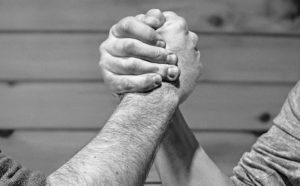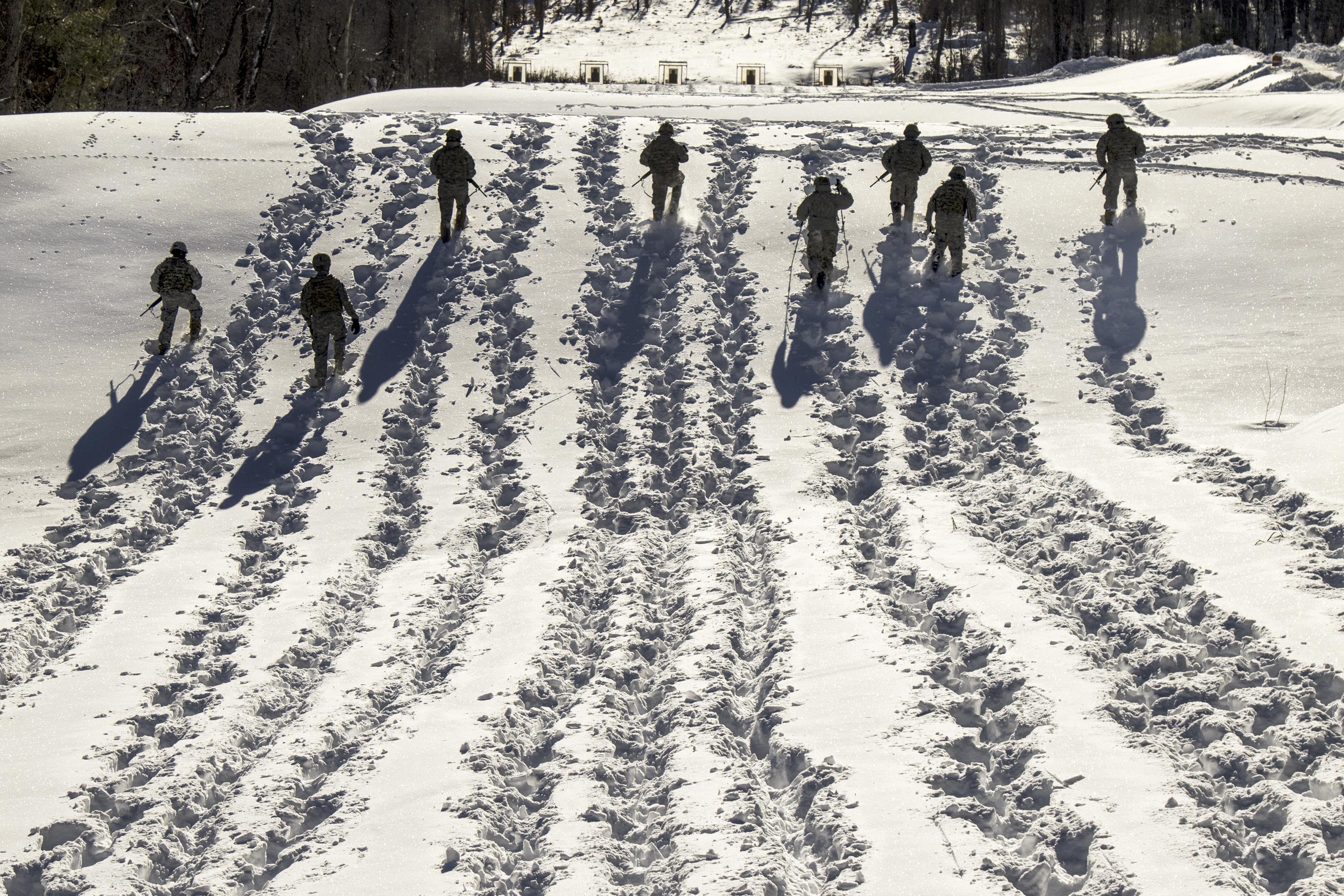
When it comes down to it, when life is on the line, we must match our deeds to our words.
After twenty-two years in the military, and another three working with veterans as a mental health counselor, I understand the immense value in the concept of trust.
Trust and the Military
The Army trusted me with millions of dollars worth of equipment. More importantly, it trusted me with the lives of some of the most amazing people I’ve ever known. My leadership trusted me with critical missions, impacting hundreds and sometimes thousands of service members.
Sometimes, trust is implicit in the grade or position that the military gave to us. You really expect that a leader knows what they’re doing…and get really bent out of shape when you realize they don’t. We trust our equipment. We trust our battle buddies. We trust the enemy, sometimes, because they can be so fricken’ predictable, and at least we know where we stand with them. We trust that chow is going to show up on time, and get really bent out of shape when it doesn’t, but always have a backup plan in the form of that Chicken with Noodles MRE stashed under the seat.
Sometimes, that trust is betrayed. The rates of sexual assault and harassment in the military, both on male and female, are overwhelmingly high. Those we are sworn to defend, to protect, to serve along side of, are too often those who hurt us. Just like any organization, there are those who are more self-focused than other-focused, and the leaders of the organization can do much to establish or destroy the culture of trust.
So at the end of a service member’s military career, whether it be eight years or twenty years, they have learned to trust at some points and not trust at others. They have a finely tuned trust/distrust meter that served them well, or maybe not so much, but it was mostly effective.
Trust is a very fragile and powerful concept. It is easily broken, and slowly and imperfectly repaired when it is. If it stands the stress and test, however, it is a bond that binds tighter than steel.
My previous chosen profession, that of Soldier, placed immense amounts of value on the concept of trust, and prepared me accordingly. I received guidance and mentorship. I was rewarded when I cared for that trust appropriately, and punished when I abused that trust. Whether in combat or in garrison, I was more than reasonably certain that I could get the support that I needed when I asked for it.
Trust and Veteran Mental Health
My current chosen profession, however, does not have the same buy-in when it comes to a culture of trust from veterans. Like it or not, true or not, veterans think they can’t trust mental health professionals.
The gift of trust that a veteran gives to a mental health professional is even more fragile and tenuous than when that service member trusted their leadership in the military. They don’t know me, they don’t know what I look like or am going to say to them when they sit down in my office. They know what it feels like when they think about some of the stuff that they saw or did, so of course other people are going to be horrified or nauseated or judgmental. Why wouldn’t a therapist be that way too?
A lot of it, in my opinion, is that we, veterans, put more trust in misinformation than we do in reality. We accept common experiences as total truth, and react accordingly. We go from a “sometimes this happens” mindset to “this always happens.” I hear it often: “They’re just going to throw a bunch of pills at me.” Sure that happens, sometimes. Maybe even a majority of the time, with some psychiatrists. Others that I know actually reduce the number of medications that veterans are on, rather than increase them. “They’re not really going to understand where I’m coming from, so there’s no sense in trying.” There’s not really any sense in that, if that’s what you believe, if that’s what you trust to be true.
Instead, I believe the mental health profession needs to learn how to establish trust in the veteran community. Trust that mental health counseling is a safe place for the veteran to understand more about themselves, about why they think and act the way they do. Trust that when a veteran reaches out, support will be available.
We focus so much on stigma against seeking help, and overcoming it, that we forget that a when a veteran reaches out and knocks on the door, there’s someone on the other side to answer. When veterans hear of that trust being broken, or betrayed, or abused in some way, then they’ll share it. And other veterans will believe it, because we trust the word of one of our own before we trust the word of someone we don’t know.
The other side of broken trust is hope. Hope that there is someone there who will be able to answer, who will respond when you reach out. Hope that there is a mental health professional that understands the veteran, is able to honor the trust that is placed in them, and help the veteran become more aware of their concerns.
For me, that trust is a sacred gift that I am honored to receive. And there are others like me in the mental health profession. You just have to look for us, because we’re there, waiting to help.
Engage hope, and give us your trust. We’ll do our best to care for it.
 The Head Space and Timing Blog is supported by the Colorado Veterans Health and Wellness Agency, a 501(c)3 Nonprofit in Colorado Springs, Colorado. The goal of the CVHWA is to provide military culturally competent mental health counseling to veterans and their spouses, regardless of characterization of discharge, time of service, or era of service. Our vision is to assist veterans to identify and remove barriers to their mental, physical, emotional, and behavioral wellness. For questions or inquiries, contact us!
The Head Space and Timing Blog is supported by the Colorado Veterans Health and Wellness Agency, a 501(c)3 Nonprofit in Colorado Springs, Colorado. The goal of the CVHWA is to provide military culturally competent mental health counseling to veterans and their spouses, regardless of characterization of discharge, time of service, or era of service. Our vision is to assist veterans to identify and remove barriers to their mental, physical, emotional, and behavioral wellness. For questions or inquiries, contact us!



3 Comments
Keith Myers · March 17, 2017 at 6:07 am
So true in every way. Thanks for posting!
Philip Jones · March 17, 2017 at 9:42 am
So true, the trust that our veterans have in us as counselors is an honor. I believe you are correct when you say the trust is greater than their military leadership–much greater. As retired soldier, I think one of the best ways we can foster that is to show we are veterans and understand. As you said: “because we trust the word of one of our own before we trust the word of someone we don’t know.”
The Path of Painful Truth - Head Space and Timing · October 12, 2017 at 5:10 am
[…] consider every moment given to me by a veteran as an honor. Trust is a key component of what I do. Eddie had a thought, like he said, and called me up out of the blue one day. He might not have […]
Comments are closed.